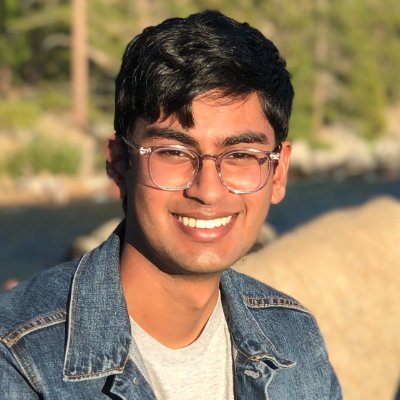Suchir Balaji’s parents seek answers about OpenAI whistleblower’s death

Indian American OpenAI researcher’s parents refuse to believe their son died by suicide; hire expert to perform an independent autopsy
By Arun Kumar
Indian American OpenAI whistleblower Suchir Balaji’s parents refuse to believe their son died of suicide as determined by authorities and have hired an expert to seek answers about circumstances of his death last month.
Three months after publicly accusing his former employer, OpenAI, of infringing on copyrights when training its AI chatbot, Balaji, 26 was found dead in his San Francisco apartment On November 26, two days before Thanksgiving.
READ: Broadridge appoints Ashima Ghei as Chief Financial Officer (December 27th, 2024)
In addition to the legal issues around consuming copyrighted material, Balaji told the New York Times in an interview published in October, it was also “not a sustainable model for the internet ecosystem as a whole.”
The medical examiner deemed Balaji’s death as suicide, and the SFPD has said there is “no evidence of foul play.” However, expressing doubt their son could have died by suicide, Balaji’s mother and father have demanded a thorough investigation and have hired an expert to perform an independent autopsy.
“We’re demanding a thorough investigation — that’s our call,” said Balaji’s mother, Poornima Ramarao told Mercury News in an interview. “No one believes that he could do that,” she said about Balaji taking his own life, describing her only child a “an amazing human being, from childhood.”
Born in Florida and raised in the Bay Area, Balaji was a prodigy from an early age, his mother said. He spoke her name at three months old; at 18-months he would ask “me to light a lamp to cheer me up,” and could recognize words at 20 months, she said
Ramarao said she wasn’t aware of her son’s decision to go public with his concerns about OpenAI until the Times ran his interview. While she immediately harbored anxiety about his decision — going so far as to implore him to speak with a copyright attorney — Ramarao also expressed pride in her son’s bravery.
‘He kept assuring me, ‘Mom, I’m not doing anything wrong — go see the article. I’m just saying, my opinion, there’s nothing wrong in it,” said Ramarao, herself a former employee of Microsoft who worked on its Azure cloud computing program. “I supported him. I didn’t criticize him. I told him, ‘I’m proud of you, because you have your own opinions and you know what’s right, what’s wrong.’ He was very ethical.”
After leaving the company, Balaji settled on plans to create a nonprofit, one centering on the machine learning and neurosciences fields, Ramarao said. He had already spoken to at least one venture capitalist for seed funding, she said.
“I’m asking, like, “How will you manage your living?’,” Ramarao said. She recalled how her son repeatedly tried to assuage any concerns about his finances, suggesting that “money is not important to me — I want to offer a service to humanity.”
Balaji last spoke to his parents on Nov 22, a 10-minute phone call that centered around his recent trip and that ended with him talking about getting dinner. “He was very happy,” Ramarao said. “He had a blast. He had one of the best times of his life.”
Ramarao remembers calling her son shortly after noon on Nov 23, but said it rang once and went to voicemail. Figuring that he was busy with friends, she didn’t try visiting his apartment until Nov 25, when she knocked but got no answer.
She said she called authorities that evening, but was allegedly told by a police dispatch center that little could be done that day. She followed up Nov 26 and San Francisco police later found Balaji’s body inside his apartment.
Ramarao said she wasn’t told of her son’s death until a stretcher appeared in front of Balaji’s apartment. She was not allowed inside until the following day. “I can never forget that tragedy,” Ramarao said. “My heart broke.”
Ramarao questioned authorities’ investigation of her son’s death, claiming that San Francisco police closed their case and turned it over to the county medical examiner’s office within an hour of discovering Balaji’s body.
Sitting on her living room couch, Ramarao shook her head and expressed frustration at authorities’ investigative efforts so far. “As grieving parents, we have the right to know what happened to our son,” Ramarao said. “He was so happy. He was so brave.”
Ramarao said she and her husband have since commissioned a second autopsy of Balaji’s body. She declined to release any documents from that examination. Her attorney, Phil Kearney, declined to comment on the results of the family’s independent autopsy.
In a statement to Business Insider OpenAI said it was “devastated” to learn of Balaji’s death, and said they had been in touch with his parents “to offer our full support during this difficult time.”
“Our priority is to continue to do everything we can to assist them,” the company’s statement read. “We first became aware of his concerns when The New York Times published his comments and we have no record of any further interaction with him.
“We respect his, and others’, right to share views freely,” the statement added. “Our hearts go out to Suchir’s loved ones, and we extend our deepest condolences to all who are mourning his loss.”

